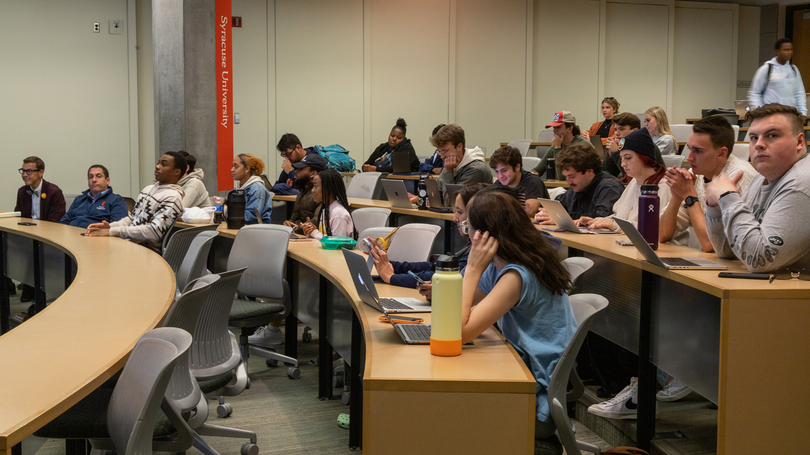SA, GSO collaborate to address sustainability issues on-campus

Syracuse University's Student Association and Graduate Student Organization are teaming up to tackle sustainability on campus. Nina Gerzema I Asst. Photo Editor
To support student journalism and the content you love, become a member of The Daily Orange today.
Syracuse University’s Student Association and Graduate Student Organization are partnering to address environmental sustainability issues on campus.
Both SA President David Bruen and GSO President Yousr Dhaouadi said the groups’ sustainability efforts on campus have a number of goals in common, and that combining the advocacy efforts of the undergraduate and graduate students will aid in progress for both.
“GSO and Student Association, especially since I’ve been president, have had a very good relationship, and I’m just glad to see that materialize,” Bruen said.
SA is currently working on a report of sustainability policies and goals, and GSO has been working to compile information, specifically from Sustainability Tracking Assessment and Rating System SU ratings, for SA’s report.
While the two groups have had projects intersect before, Dhaouadi said this is the first time GSO has worked in close cooperation with SA. The two groups’ work together will strengthen sustainability at SU as a whole, Bruen said.
Bruen and Dhaouadi said they aim to make progress in pursuing the university’s goal of reaching carbon neutrality by the year 2030. Bruen said the groups will also continue to work together to address other sustainability issues at SU, including those involving renewable energy, carbon offsets and single-use plastics.
“Seeing solar panels installed on campus, being literally warmed by an electric alternative, rather than a fossil fuel and energy source, that is a huge shift,” he said.
Another focus will be looking at the culture and education about sustainability on SU’s campus, Bruen said. He added that SA hopes to make students aware of classes they could take at SUNY ESF and integrate environmental education and awareness into SU’s curriculum.
“Sustainability is not just an individual responsibility and it is also not an issue of just carbon emissions or greenhouse gas and gas emissions,” he said. “ It’s about everything and anything that is attached to that.”
Bruen said that in reaching out to organizations like GSO and other university organizations, SA has learned that communities across SU and SUNY ESF’s campuses have high interest in sustainability and sustainable practices. He said he hopes to bring professors and student groups to the table at future meetings.
“We don’t really have to recreate the wheel,” he said. “We can really just bring all of these different voices together and different ideas and turn it into one really constructive (agenda) that I think moves the university forward in a big way.”





